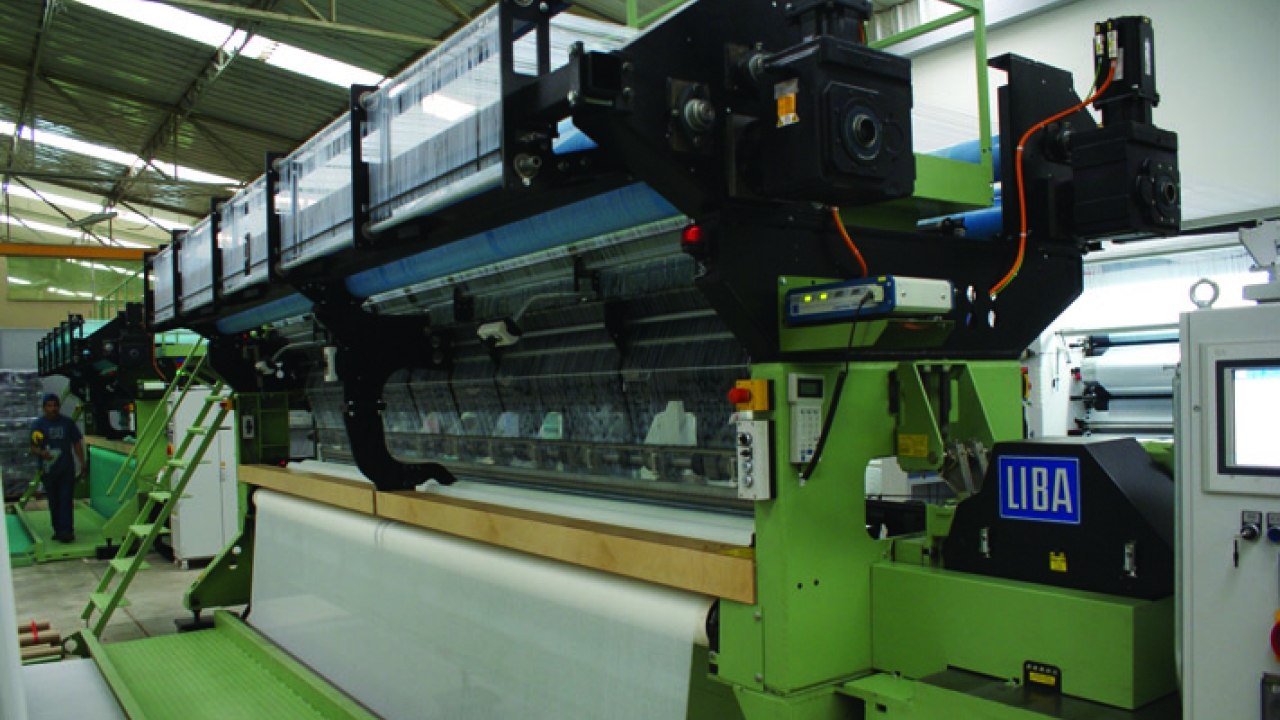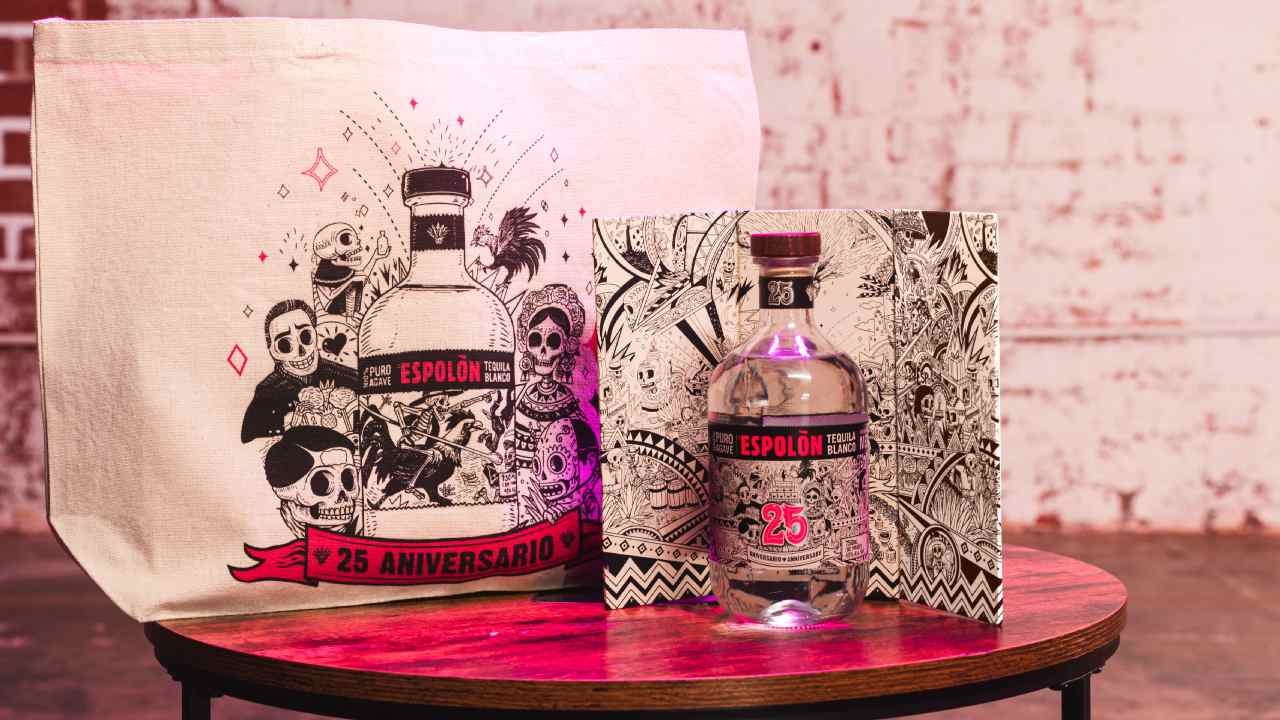New player in Peru

Lima-based Grupo Fibrafil is moving into label production with the purchase of a Gallus ECS 340 flexo press. Backed by strong infrastructure throughout Latin America, the company has ambitions of becoming an important regional player, as James Quirk reports
Grupo Fibrafil, based in the Peruvian capital of Lima, is moving into label production with the installation of an 8-color Gallus ECS 340 flexo press. The company is one of the leading Latin America producers of two agro-industrial products: shade cloth and tomato twine, which are deployed in greenhouses.
But Grupo Fibrafil’s impact might be felt beyond its local market. With an existing regional network that includes factories in Peru and Chile and offices in Colombia, Costa Rica, Mexico and Uruguay, the company has ambitions to export labels in the near future and calls its investment in the Gallus press ‘just the beginning’.
Testing the water
Nicolas Zaidan, Grupo Fibrafil’s sales manager, says that the company was encouraged to move away from its core market – for which it produces 1.82 million square meters of products a month on a fleet of 21 machines – because of the ‘great potential for growth’ in the Peruvian label sector.
A 4-color flexo press from Etirama was installed in mid-2011 to test the water. It was quickly running at full capacity – 24 hours a day, seven days a week. ‘The Peruvian label market is not well-attended,’ says Zaidan. ‘Many labels are still imported from abroad. Producing locally with the Etirama press, we were able to win a lot of business from brands attracted to shorter delivery times, which are crucial.’
The next step was the purchase of the Gallus ECS 340, the Swiss manufacturer’s granite-based flexo press. Its eight color units are fully UV and the machine counts on cold foil, hot foil and screen printing among its options. According to Zaidan, the press will be dedicated to the production of prime, security and PVC labels, with an annual capacity of two million square meters.
The Gallus ECS 340 is a short web path, fully servo-driven, multi-pass flexo and cold foiling machine with front loading dies, print and anilox sleeves. The ECS 340 is constructed from recyclable technical granite, which helps eliminate vibration and noise from the press line. The press features a very short web path, which considerably reduces both set-up and running waste, while the technical granite frame allows a design with easy access to the print and processing stations.
The installation is the first of a Gallus press in Peru. Service and technical support will be handled from the press manufacturer’s base in Mexico.
Grupo Fibrafil’s investment is far from over. A second machine is already being lined up for the end of the year, while the company has also installed a slitter rewinder from US-based Converting Equipment International, which runs at speeds of up to 600 meters a minute; a plate mounter from UK company JM Heaford; and a Flexowash anilox cleaner.
‘The investment in the Gallus press is just the beginning,’ reveals Zaidan. ‘We will be buying more machines in the future: we are considering installing three more machines during 2012 and 2013.’
Pre-press will be initially outsourced but brought in-house in the future, says Zaidan. RotoMetrics and Green Bay have been signed up as suppliers, while discussions are underway with Fasson, Bonset and Zeller + Gmelin.
Regional network
The company’s new label printing equipment will initially be housed in a dedicated 1,000 sqm area within Grupo Fibrafil’s 15,000 sqm factory. But the company is already in the process of purchasing an 8,000 sqm site nearby, where the label division – which will operate under the name Sigmaflex – will move next year.
After initially targeting the local market – where Zaidan sees particular potential in the cosmetics, pharmaceutical and food markets – the company plans to export to Chile, Colombia, Costa Rica and Ecuador. Twenty-five percent of production will be dedicated to labels for Grupo Fibrafil’s agro-industrial products.
The company’s existing network of offices around the region will of course facilitate its serving of foreign markets. Zaidan says he will employ a dedicated label salesperson in these other offices to sell directly into their local markets. Even export costs are not a problem, as the company already sends its agro-industrial products around the region, allowing label runs to be added to existing shipments.
‘Exporting labels to other countries is complicated if you don’t have a network in place,’ says Zaidan. ‘The client wants its labels tomorrow, but might have to wait 20 days. We will be able to serve foreign clients quickly with local stock.’
Further label presses may be installed in other countries where the company already operates.
Grupo Fibrafil, which employs around 80 people at its factory in Peru, is part of Grupo Zaidan. It is only in Peru that the company is known as Grupo Fibrafil, but the other offices in the region all fall under the Grupo Zaidan umbrella.
Pictured: Grupo Fibrafil's plant houses 21 machines for the production of shade cloth and tomato twine
This article was published in L&L issue 2, 2012
Stay up to date
Subscribe to the free Label News newsletter and receive the latest content every week. We'll never share your email address.


